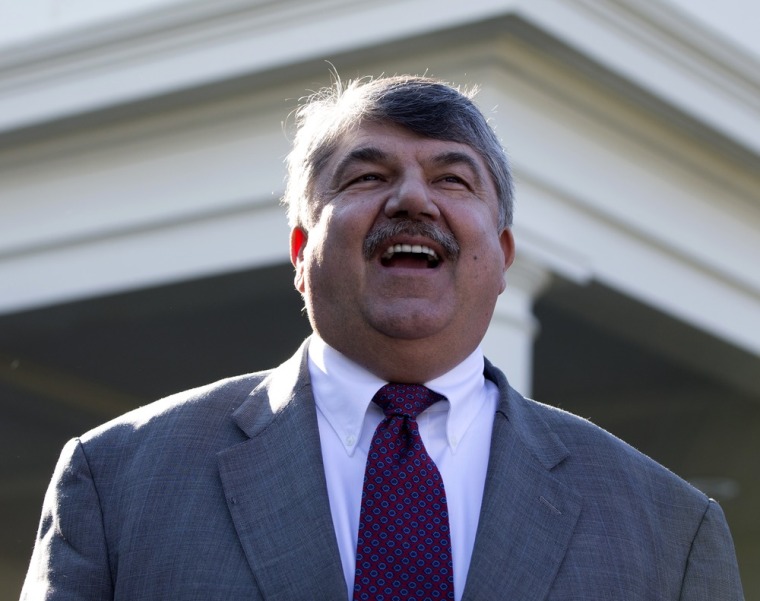The fiscal cliff deal which Congress approved late Tuesday night was a flawed but significant step in the right direction, said representatives of some of the nation's biggest labor unions. However, their fight to prevent cuts to public spending will continue for at least the next two months.
"We were successful in the short run," said Mary Kusler, NEA's director of government relations. "Time will tell if we're successful in the long run."
"I think we were largely successful in the goals we set out," said Bill Samuel, director of government relations for AFL-CIO, America's largest labor federation. "We set out to protect Social Security, Medicare, and Medicaid; to prevent another tax cut for the richest 2%; and to prevent any additional job-killing spending cuts."
NEA, AFL-CIO, and other major American unions played an aggressive role in fiscal cliff negotiations. The leaders of AFL-CIO, SEIU, AFSCME, and NEA met privately with President Obama shortly after the election. Over the following months, they staged a national day of action, ran ads targeting Republican and conservative Democratic legislators, and flew members to Washington, D.C. so that they could lobby their representatives directly. Organized labor's top priorities were simple: Prevent cuts to the social safety net, and eliminate the Bush tax cuts for those making more than $250,000 a year.
The final deal met some, but not all, of those objectives. The Bush tax cuts remain in place for people making less than $400,000 a year—$150,000 more than labor wished.
On the other hand, the deal also preserves current spending levels for social welfare, and even extends unemployment insurance, which was set to expire. Preventing cuts to the welfare state, said Kusler, "was a huge victory on our part."
It was not obvious the fiscal cliff deal would be successful in that regard. In late December, Obama seemed to concede to the Republicans on Social Security cuts. AFL-CIO President Richard Trumka urged the White House to withdraw the concession, though Kusler saw other factors besides labor pressure in the cuts' disappearance from the deal.
"I think the size of the deal killed chained CPI," she said, referring to the policy adjustment which would have reduced Social Security payments. In order to come to a short-term agreement, Congress delayed voting on several key issues—including the debt ceiling and the series of automatic spending cuts known as sequestration—for two months.
"There's a lot of potential danger in the way the deal came together for us, in very short order," said Samuel. "In less than two months, we're facing—I hate to use the word—another cliff." As a result, Republican attempts to cut welfare and other spending have been merely delayed, not truly routed.
In addition to reductions to Social Security, Medicare and Medicaid, Kusler said her union had reason to fear deep spending cuts which would threaten the jobs of many of its members. The NEA represents public school teachers, and Kusler said that the automatic spending cuts which have now been delayed until March "could remove close to 79,000 educators from classrooms across the country."
"We will be working very hard to make sure that Congress knows that they have to permanently put an end to this kind of looming threat of across the board cuts to areas as important as education," she said. "Our students deserve better, and they deserve to know that they'll continue to have the supports they need in the coming school year."
Samuel anticipates that organized labor would continue to employ its fiscal cliff lobbying strategy. "I think we're going to have to be using the normal field mobilization tools we have to keep pressure on Congress, focus on jobs, and to get the irrational focus off the deficit," he said. At the same time, he added, "we're going to have to be fighting this rearguard action to protect Social Security, Medicaid, and Medicare."
